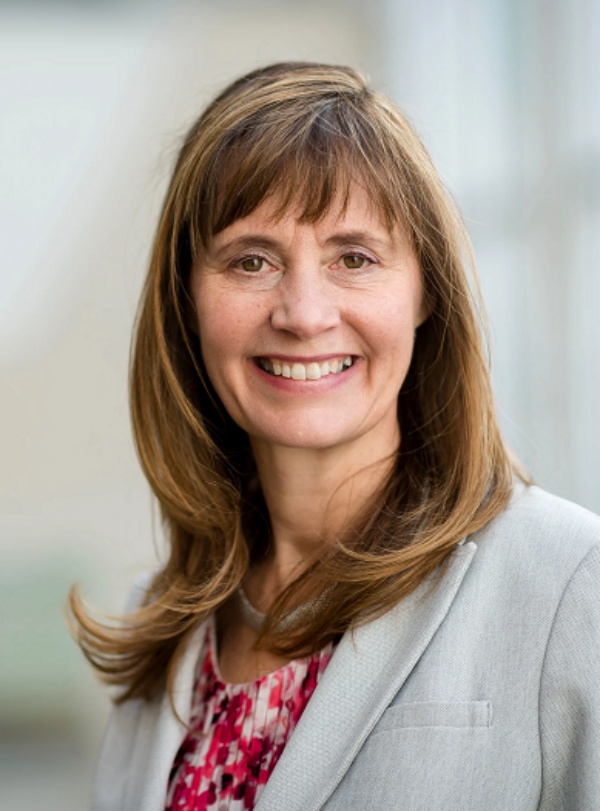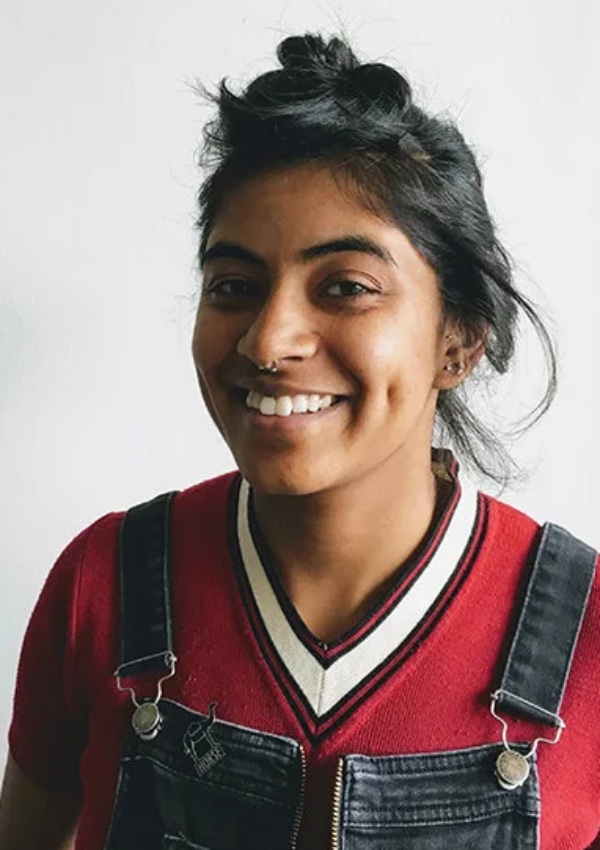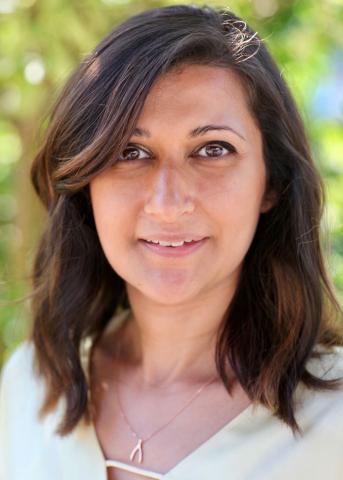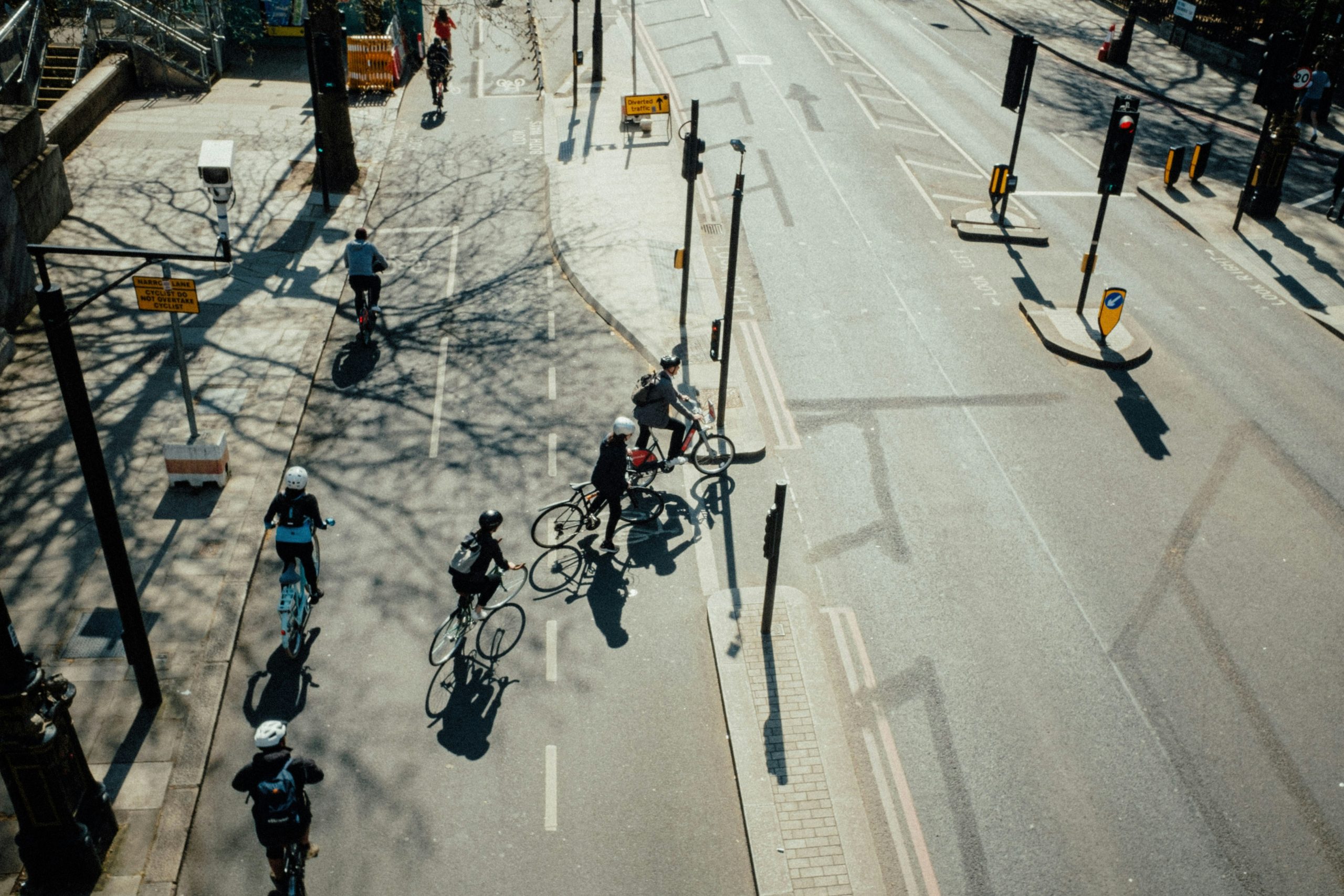Featured Guest
You’ll find this guest among our growing roll of Urban Champions.
-

Shauna Sylvester
ED, Morris J. Wosk Centre for Dialogue
-

Shalaka Jadhav
Design and Community Manager, Youth Climate Lab
-

Juvarya Veltkamp
Director, Canada Climate Law Initiative
5 Key Takeaways
A roundup of the most compelling ideas, themes and quotes from this candid conversation
Climate and economy are two sides of the same coin
According to Juvarya Veltkamp, Director of Canada Climate Law Initiative, “you can’t address climate without fundamentally changing our economy, and to change the economy I think we need better tools to make decisions.” Juvarya emphasizes the need to understand currencies as more than just dollars and cents, but also carbon, social equity, ecosystem services, and natural capital. If climate mitigation and adaptation initiatives continue to be divorced from the multi-faceted necessities of economic transitions, they will keep falling short.
Multi-solving
Shalaka Jadhav, Design and Community Manager at Youth Climate Lab, defines multi-solving as, “an approach to problem solving that uses an intersectional lens to look at how problems are connected to each other, and how solutions can be crafted to solve multiple issues at once.” Multi-solving can also be referred to as integrative planning, which combines multiple lenses from the fields of urban planning, climate change, biodiversity, economy, equity, reconciliation and justice. This comprehensive approach requires performative targets to evaluate the efficacy of programs and initiatives.
Elevating the position of cities
Across the board, panelists recognized Canadian cities as hubs of innovation. Climate strategies are determined at the international level, ratified by national governments, imposed on regions, and enacted at the municipal level. Cities have become global leaders in green initiatives. Rik Logtenberg, City Councillor for the City of Nelson, speaks to how Nelson provided expertise for to the federal government’s Greener Homes Program. Since the majority of peoples across the world live in urban environments, cities need to be included at the highest tables in order to develop effective solutions.
Alternative visions for a just transition
By Shauna Sylvester’s observation, the Generation Energy dialogues across Canada revealed that some of the most innovative thinking came from citizens who worked in the Albertan fossil fuel industry. Despite this, labour has often been neglected in climate adaptation and mitigation considerations. COP26 is an opportunity for cities to collect best case examples for a just transition. According to Juvarya, “We need that vision to show the alternative. Here’s how we’re going to re-train. Here’s how we’re going to get people shifting into the economy of the future.” A green future requires integrating labour so that nobody is left behind in the transition.
A rise to solve
With Canada warming twice as fast as the rest of the world, the moment for action is now. There is no longer a choice. Shalaka, in her work with the Youth Climate Lab, says that youth are tired of bending. The next generation of leaders are beginning to find their stride. No longer complacent with lip service they have chosen to lead with implementable actions based on the seven generations principle: decisions that we make today need to result in a sustainable world seven generations into the future. As international standards develop to incentivize sustainable practices, climate finance is becoming a promising tool.
Additional Resources
C40 and the Global Covenant of Mayors – Race to Zero: https://www.c40knowledgehub.org/s/cities-race-to-zero/
SFU’s Morris J. Wosk Centre for Dialogue – Canada’s Cities at COP26: https://www.citiescop26.ca/
SFU’s Morris J. Wosk Centre for Dialogue – Daily Briefings: https://www.citiescop26.ca/roadtoglasgow/
Tzeporah Berman’s TED Talk on the Fossil Fuel Non-Proliferation Treaty: https://www.ted.com/talks/tzeporah_berman_the_global_treaty_to_phase_out_fossil_fuels
Youth Climate Lab & Climate Caucus – Infiltration Manual: https://www.youthclimatelab.org/infiltration-manual
Youth Climate Lab at COP26 – Upcoming audio blog series on multi-solving hosted by youth from the Global South: https://www.youthclimatelab.org/multi-solving/
Full Panel
Transcript
Note to readers: This video session was transcribed using auto-transcribing software. Manual editing was undertaken in an effort to improve readability and clarity. Questions or concerns with the transcription can be directed to events@canurb.org with “transcription” in the subject line.
Full Audience
Chatroom Transcript
Note to reader: Chat comments have been edited for ease of readability. The text has not been edited for spelling or grammar. For questions or concerns, please contact events@canurb.org with “Chat Comments” in the subject lin
From Canadian Urban Institute: You can find transcripts and recordings of today’s and all our webinars at https://canurb.org/citytalk
00:15:26 Abigail Slater (she/her): Hello from Tkaranto
00:16:19 Canadian Urban Institute: Welcome! Folks, please change your chat settings to “all panelists and attendees” or to “everyone” so that we can all see your comments.
00:16:26 Canadian Urban Institute: Attendees: where are you tuning in from today?
00:17:00 Abigail Slater (she/her): Hello Mary & CUI.
00:17:05 Tanya Fink: Musqueam, Squamish, Tsleil-Waututh territories (Vancouver, BC)
00:17:08 Katherine Danks: Hello from Toronto
00:17:24 Richard Joy: Richard Joy, Toronto. ULI Toronto.
00:17:26 Canadian Urban Institute: HOUSEKEEPING: • A friendly zoom reminder, you can see and hear us but we can’t see or hear you • We have closed captioning enabled for today’s session. If you would like to turn it off, please click on the button at the bottom of your screen and disable • We are recording today’s session and will share it online at www.citytalkcanada.ca • We hope this session is as interactive as possible, so please feel free to share comments, references, links or questions in the chat
00:17:31 Rob Ventura: Hello from Essex (SW Ontario)
00:18:53 Lynn Robichaud: Hello from City of Burlington, ON
00:19:22 Ken Kelly: bon chance, team, at COP 26!
00:20:01 Canadian Urban Institute: Rik Logtenberg, Founder and Chair of Climate Caucus and Nelson City Councillor Rik was born in Sudbury, Ontario. He studied Computer Science at Western University in London, but left before graduating to create his first of two startups in Vancouver. In 2001, after selling one of the companies, Rik moved to Nelson where he met his wife, Sonja at the local climbing gym. Together they spent their first few years roaming the mountains as avid hikers, snowboarders, mountain bikers, and rock climbers. Their daughter, Grace, was born in 2011 at the same that Rik launched his most recent company, Timely.
00:20:10 Canadian Urban Institute: Today, Rik is the Chief Technology Officer (CTO) of Timely, a calendar software company that has more than 100,000 customers in 160+ countries around the world. Rik has been a software entrepreneur his entire career and brings both a technical and entrepreneurial perspective to his role as Councillor. His biggest concern is preparing Nelson for the coming impacts of climate change. He is the founder of the Climate Leadership Caucus, an organization dedicated to bringing elected representatives together to build positive local solutions to climate change across the country.
00:20:37 Gary Davidson: Hi All – Gary Davidson in Bayfield Ontario
00:21:59 Canadian Urban Institute: Juvarya Veltkamp, Director, Canada Climate Law Initiative, Peter A. Allard School of Law, University of British Columbia Juvarya brings 22 years of experience, with 16 directly related to climate change, sustainable development and high performance buildings. Prior to joining CCLI, Juvarya provided oversight for the development of low-carbon economy projects and programs for the City of Vancouver, including climate-awareness and corporate education materials to accelerate the adoption of low-carbon solutions and help small- and medium-sized businesses develop climate action plans. Juvarya earned an MBA from the University of British Columbia and a B.A. (Hons) in Economics and Sustainable Development from the School of Oriental and African Studies (SOAS), London U.K. She holds the Global Competent Boards Designation (GCB.D).
00:25:18 Canadian Urban Institute: Shalaka Jadhav, Design and Community Manager, Youth Climate Lab Shalaka Jadhav spent their childhood between cities in India and in Dubai, before moving to a neighbourhood spitting distance from Ontario’s largest mall. They are currently hosted on Treaty 1, entangling a long-time curiosity about art-based methods, and their role in enabling unusual connections and collective futures. In their day job, Shalaka designs and facilitates curriculum and workshops that support young people in moving towards just, climate-resilient futures at Youth Climate Lab. Trained as an urban planner, Shalaka is following the advice of an aptitude test to pursue Curatorial Practices at the University of Winnipeg.
00:25:27 Canadian Urban Institute: As Shalaka explores and builds on their work in the climate space as it intersects with their curatorial ethic, they see it to be guided by a walking methodology, carrying forward the work of their ancestors in tending for the land, and woven together by conversations over cups of tea. In 2021, Shalaka became the Curator-in-Residence at the Centre for Art Tapes, and will be an Emerging Curator at the inaugural Visiting Curator Program at the University of Manitoba School of Art Gallery (SoAG).
00:27:12 Canadian Urban Institute: Shauna Sylvester, Executive Director, Morris J. Wosk Centre for Dialogue Shauna Sylvester is the Executive Director of Simon Fraser University’s Morris J. Wosk Centre for Dialogue, a Professor, Professional Practice in the Faculty of Arts and Social Sciences, a proud mother and a relationship focused leader. Shauna is committed to excellence in public engagement and hosting difficult conversations. For over 30 years she has served as a convenor and facilitator to hundreds of citizen, community and stakeholder dialogues at the local, national and global level. She has led several complex global dialogues on climate and peace, dozens of national dialogues on democracy, foreign policy and energy and hundreds of dialogues locally on urban issues such as transportation and housing.
00:27:22 Canadian Urban Institute: As a social entrepreneur, Shauna is the Co-founder and first Executive Director of five Pan-Canadian initiatives: the SFU Public Square, Renewable Cities, Carbon Talks, Canada’s World and IMPACS – the Institute for Media, Policy and Civil Society, a media and democracy organization that operated in Canada and in conflict and post-conflict zones around the world.
00:27:26 Abigail Slater (she/her): It’s interesting to consider bringing climate Justice lens to policy development in the way gender lens analysis was supposed to be a factor in policy. We have moved on to racial and climate Justice as another lens. Please speak to how we can ensure this approach since gender lens analyses have met only with moderate success.
00:29:46 Abigail Slater (she/her): Thanks Mary. No rush and thank you for clarifying what COP stands for.
00:31:21 Shalaka Jadhav (they/she) – Youth Climate Lab: I really like this prompt Abigail, but want to perhaps provide a complication: does a lens framework actually WORK? Can we create copy-paste tools like GBA with any effectiveness when context and capacity-work to activate that kind of analysis often lack, or fail to hold up community nuance? Particularly on arenas such as racial justice? Been thinking on this lots, so thank you for sharing!
00:35:04 Abigail Slater (she/her): Shalaka that is exactly my question. Thank you. I would posit that the gender lens framework has not worked. I look forward to hearing your approach and thoughts on this.
00:38:13 Shalaka Jadhav (they/she) – Youth Climate Lab: fyi, Youth Climate Lab has a audio blog series coming out on multi—solving hosted by youth from the Global South: https://www.youthclimatelab.org/cop26
00:38:33 Abigail Slater (she/her): Another thought. We haven’t exactly moved on from
Covid (I know Mary did not mean this literally) but hasn’t the case been made that pandemics and climate change are inextricably linked? Whether habitat destruction leads to infected animals migrating (true we don’t yet know origin of Covid) or the rise of insect borne disease as the climate warms and insects migrate to those warmer climes. Would the tie in give opportunities to garner more support to battle climate change? It’s much more recent and real.
00:39:30 Abigail Slater (she/her): Not on the “horizon”.
00:39:38 Shalaka Jadhav (they/she) – Youth Climate Lab: For folks to whom multi-solving is new, multi-solving is an approach to problem solving that uses an intersectional lens to look at how problems are connected to each other, and how solutions can be crafted to solve multiple issues at once.
00:40:03 Lynn Robichaud: Co-benefits!
00:41:33 Abigail Slater (she/her): And in Ontario EV subsidy was one of the first things cut. (Not E bikes)
00:41:36 Rob Ventura: Working for an upper tier municipality, I have experienced a lot of disconnect between the upper tier and local municipalities on climate action plans (mostly on the implementation side). I fear there is a lack of developing regional actions due to failure of incorporating climate action into our budgets (both short term and long term). Do any of the panelists have thoughts on this and how to move forward?
00:45:04 Abigail Slater (she/her): It’s heartening to hear optimism.
00:45:10 susan harrington: WELL said – yes Rise to Solve – thank you panelists and CUI
00:51:40 Bryan Buggey: We need to land that new organization in Vancouver!! Just sayin’
00:57:22 Rob Ventura: Well said Shauna!
01:00:45 Abigail Slater (she/her): This hoes back to “lens” approach. Can Shalaka speak to this??
01:00:53 Abigail Slater (she/her): *goes
01:01:35 Rob Ventura: No idling policies in Ontario! BC has it..
01:01:59 Rob Ventura: bylaws*
01:02:25 Shauna Sylvester, she/her, SFU Morris J. Wosk Centre for Dialogu: Please take a look at the https://www.citiescop26.ca info site
01:02:49 Shalaka Jadhav (they/she) – Youth Climate Lab: If folks are interested, Youth Climate Lab & Climate Caucus worked on a youth-led manual on engaging local government on climate: https://www.youthclimatelab.org/infiltration-manual
01:03:12 Shalaka Jadhav (they/she) – Youth Climate Lab: Youth Climate Lab also has a audio blog series coming out on multi—solving hosted by youth from the Global South: https://www.youthclimatelab.org/cop26
01:04:10 Bryan Buggey: For green jobs and youth, check out this NYC program called Green City Force. https://greencityforce.org/
01:04:11 Shauna Sylvester, she/her, SFU Morris J. Wosk Centre for Dialogu: C40 and the Global Covenant of Mayors – Check out the Race to Zero
01:05:35 Shauna Sylvester, she/her, SFU Morris J. Wosk Centre for Dialogu: Tzeporah Berman’s TED Talk on Fossil Fuel Non-Proliferation Treaty
01:07:24 Shauna Sylvester, she/her, SFU Morris J. Wosk Centre for Dialogu: Important to talk about one of the priorities of cities has been increasing more funding for cities in the global south
01:07:47 Shalaka Jadhav (they/she) – Youth Climate Lab: https://mariamekaba.com/: “when we set about trying to transform society, we must remember that we ourselves will also need to transform. Our imagination of what a different world can be is limited, as we are deeply entangled in the very systems we are organizing to change”
01:08:44 Canadian Urban Institute: Keep the conversation going #citytalk @canurb You can find transcripts and recordings of today’s and all our sessions at https://www.canurb.org/citytalk CUI extends a big thank you to our partner on today’s session, SFU’s Morris J. Wosk Centre for Dialogue, and to TD for their support on CityTalk.
01:08:45 Andrea Hedley: CivicSpark: youth climate corps project in California focused on building local government capacity to implement climate policy – big impact over 6 years the program has been running https://civicspark.lgc.org/our-impact/
01:09:26 Canadian Urban Institute: Throughout COP26, the Morris J. Wosk Centre for Dialogue at Simon Fraser University, in partnership with CUI, C40 Cities, ICLEI Canada, and the Canadian Urban Sustainability Practitioners (CUSP) will be providing daily updates from Glasgow between November 1 and November 11, 2021 from 6:30 to 7:15 p.m. GMT/UTC. Each briefing will include an overview of city-related updates from each day of the conference, followed by a fireside chat with a climate leader or expert who is attending COP. To join the briefings, visit https://www.citiescop26.ca/roadtoglasgow
01:09:45 Shalaka Jadhav (they/she) – Youth Climate Lab: We need to do this together, but we can’t do it alone, yes Juvarya
01:09:46 Shauna Sylvester, she/her, SFU Morris J. Wosk Centre for Dialogu: it’s small island states who shifted the global mindset that 1.5 degrees was the more appropriate maximum not 2. degrees
01:10:14 Canadian Urban Institute: We hope you will join us once again on November 18, post COP26, where we will reflect on the biggest takeaways from the summit and what’s next for cities. More information to follow, but be sure to register in advance! https://us02web.zoom.us/webinar/register/WN_S2X_qElTR3mqoPrY7Fam7A
01:11:37 Shauna Sylvester, she/her, SFU Morris J. Wosk Centre for Dialogu: And paying lots of offsets because this is hard getting onto a plane
01:12:01 Shalaka Jadhav (they/she) – Youth Climate Lab: This hopefulness is a very powerful thing, and what a way to lead!
01:12:04 susan harrington: Thank you this was a very enlightening session . Good luck in Glasgow .
01:12:30 Rob Ventura: Thank you to Mary and all the amazing panelists.
01:12:33 Stephanie Johnstone-Laurette: Thank you folks!
01:12:36 Andrea Hedley: Great conversation! Thank you!
01:12:46 Katherine Danks: Fantastic session! Thank you all!
01:12:56 Sean Cameron: Thank you all, best of luck in Glasgow!



